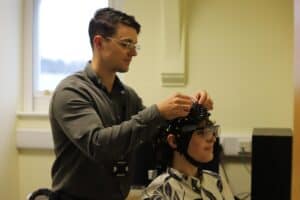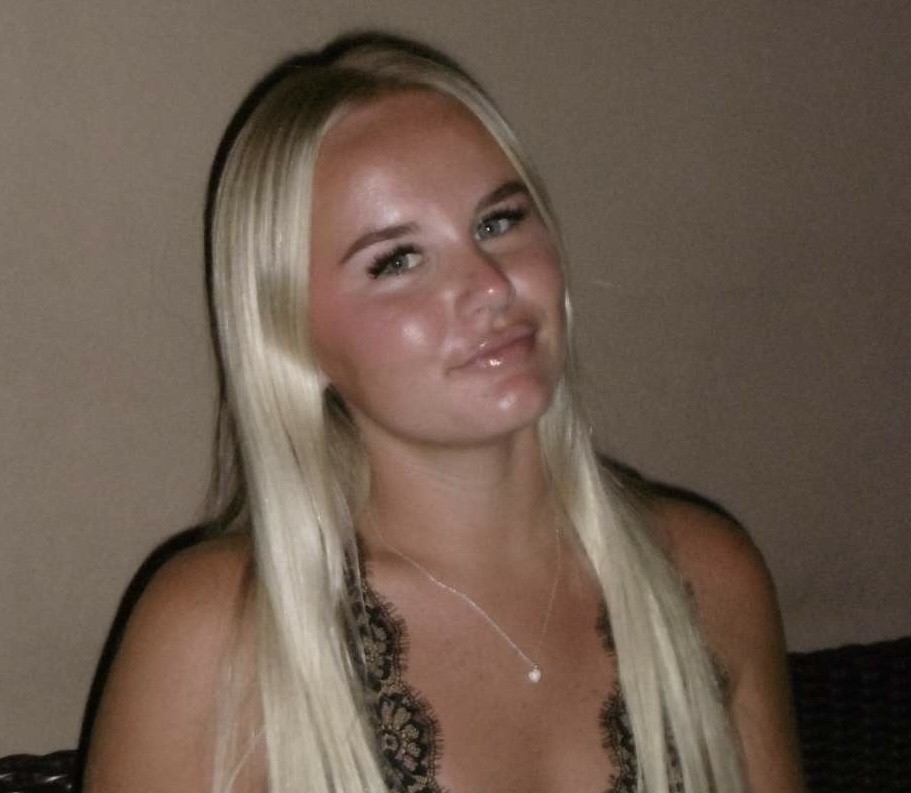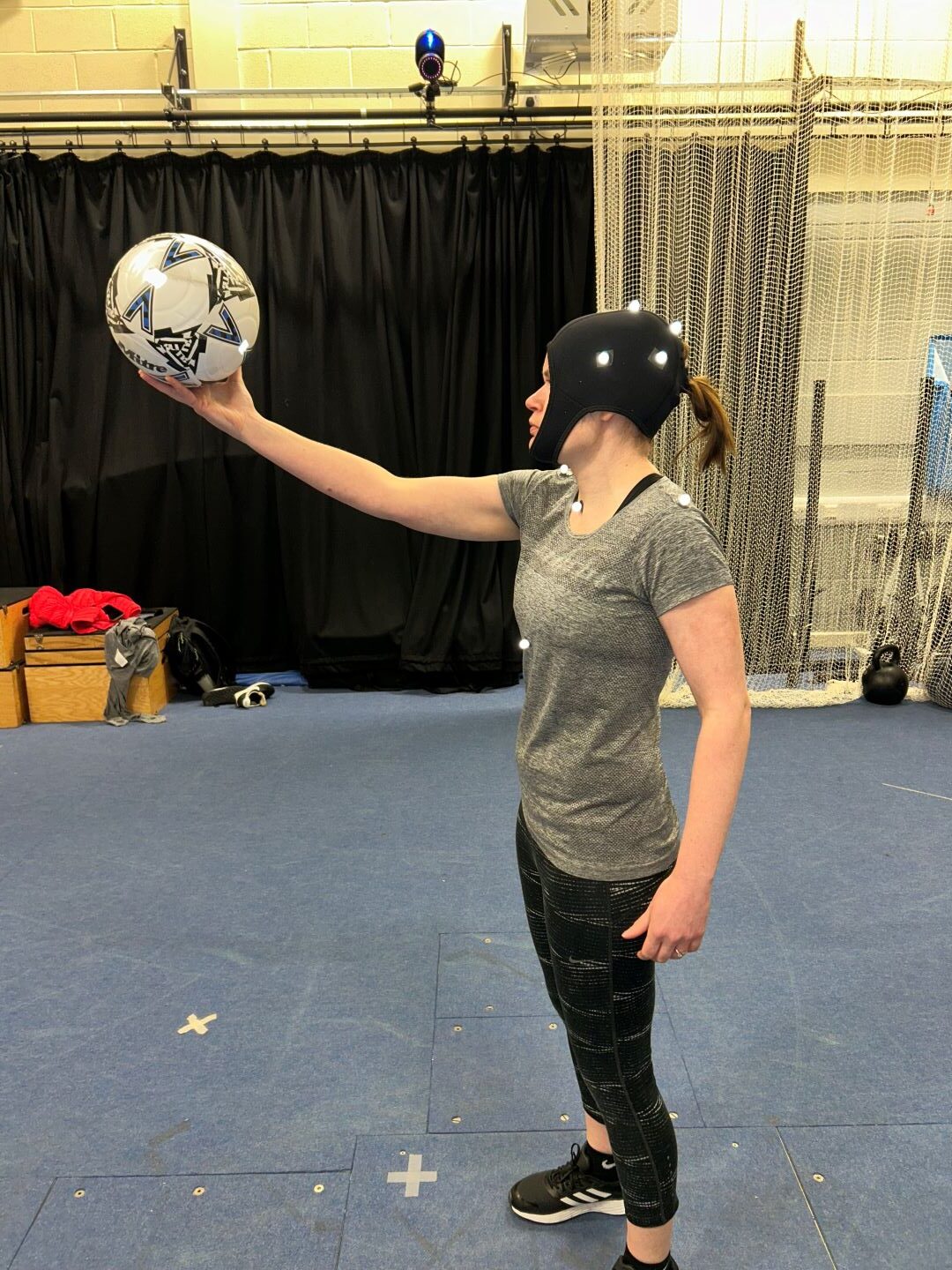Dr Benjamin Sharpe: Why we need to prioritise mental health in esports

Esports is an industry undergoing profound transformation, with 3.2 million players and viewers in the UK alone (640 million globally) – and bringing in £111.5 million to the national economy in 2020 alone. And the recent introduction of the Olympic Esports Series (OES) represents a major milestone that legitimises the sport on the world stage.
But critics argue that esports – at the Olympics and beyond – must balance entertainment value with the promotion of ethical practices and psychological support to reflect the ideals of the Olympic movement.
Alongside huge growth comes questions about how players cope with the pressures of competing. Dr Benjamin Sharpe, senior lecturer in cognitive psychology at the University of Chichester, says it is time to prioritise mental health in esports.
In our study of ‘Counter-Strike’ professionals, we demonstrated that over 25% reported moderately severe to severe symptoms of depression, while more than 80% exhibited signs of anxiety or depression (Birch et al., 2024). These alarming statistics underscore the urgent need for enhanced psychological support and intervention within the esports ecosystem.
Likewise, research that I have led or contributed towards (as outlined in recent publications: Sharpe et al., 2024a, 2024b; Birch et al., 2024; Bonilla et al., 2024; Leis et al., 2024a; 2024b), has shed light on the significant pressures, challenging contexts and unique behaviours faced by esport players that require further exploration.
Unlike traditional gaming, esports is a professionalised, spectator-driven ecosystem that mirrors conventional sports in its infrastructure, requiring athletes to adhere to rigorous training, teamwork, and competition schedules.

The UK Esports Team Committee (UKETC) has taken proactive steps to prioritise mental health support, agreeing to incorporate Psychological First Aiders within their teams. Recent partnerships, such as the collaboration between Movember and prominent esports organisers, underline the critical focus on athlete well-being in a high-pressure, high-stakes environment.
That’s why I’m leading a new BSc (Hons) Psychology of Esports programme at the University of Chichester, which is poised to address this pressing issue head-on. By equipping students with a deep understanding of the cognitive, behavioural and emotional factors at play in competitive gaming, as explored in our recent work on the effects of psychological pressure and the efficacy of low-resource interventions (Sharpe et al., 2024a, 2024b), graduates will be uniquely positioned to develop and implement evidence-based strategies to improve the overall well-being of esports athletes.
Dr Dylan Poulus, Senior Research Fellow: Gaming and Esports, Movember, said: “I am excited to see this course lead the way for esports psychology education. Dr Sharpe has emerged as an industry leader in esports psychology research and has produced some of the most impactful research to date. Its graduates could make a real change in the industry.”
Beyond the esports population, this programme will also have a transformative impact on the field of esports as a whole. As the first of its kind globally, it solidifies the University of Chichester as a centre of excellence for esports psychology research and innovation, building on the comprehensive analysis of the current state of esports research (Baker et al., 2024).
Dr Seth Jenny, Associate Professor of Exercise Science at Slippery Rock University and Senior Editor of the Routledge Handbook of Esports, notes: “There are many misconceptions and inaccurate negative stereotypes relating to esports and video gaming, as well as real health and wellness-related concerns for gamers. Professionals engaged in this field must learn the knowledge, skills and abilities needed to work effectively with this population through evidence-based education programmes and practical experiences that will help promote safe, positive and nurturing environments that efficaciously promote holistic well-being while enhancing performance. The University of Chichester’s BSc (Hons) Psychology of Esports programme is in good hands under the direction of Dr Benjamin Sharpe.”

Dr Laura Swettenham, Senior Lecturer in Sport & Exercise Psychology at Liverpool John Moores University, adds: “This degree is the first of its kind and champions a thorough underpinning in psychological theory, tailored to meet the rising need for well-being and mental health professionals in esports. This degree will prepare graduates for careers in esports and related contexts.”
Importantly, the value of this programme extends well beyond the realm of esports. The robust psychological foundation, coupled with the development of critical thinking, research and analytical skills, will enable graduates to thrive in a diverse range of psychology-related roles, from clinical and educational psychology to organisational and cognitive psychology. Employers across sectors will undoubtedly recognize the unique and highly transferable competencies that these graduates possess, opening doors to rewarding and impactful careers.
The BSc (Hons) Psychology of Esports programme represents a ground-breaking initiative that I hope will have a profound impact on the esports population, the esports field and the broader psychology landscape. By bridging the gap between these two dynamic domains, the University of Chichester is poised to produce the next generation of innovative and highly skilled psychologists who will drive positive change and push the boundaries of what is possible.
To find out more about BSc (Hons) Psychology of Esports at the University of Chichester, visit: https://www.chi.ac.uk/psychology-and-counselling/course/bsc-hons-psychology-of-esports/
Dr Benjamin Sharpe is a cognitive psychologist specialising in esports research. He founded and leads the new BSc (Hons) Psychology of Esports programme at the University of Chichester as the programme coordinator. This first-of-its-kind degree programme will fill a critical gap in the market, by bringing together the world of psychology and the rapidly evolving esports landscape.





